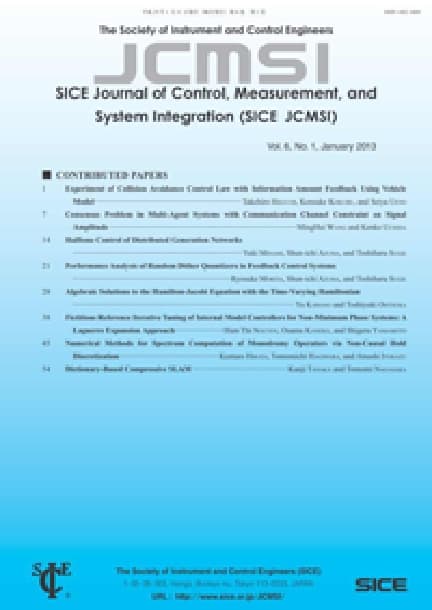Model Predictive Control for Ecological Vehicle Synchronized Driving Considering Varying Aerodynamic Drag and Road Shape Information
Anan KAKU, Md. Abdus Samad KAMAL, Masakazu MUKAI, Taketoshi KAWABE
pp. 299-308
DOI:
10.9746/jcmsi.6.299Abstract
This paper presents an ecological vehicle synchronized driving control system that aims at reducing overall fuel consumption of the vehicles in a group. A centralized system for controlling the vehicles in a group has been developed using the model predictive control method considering vehicle-aerodynamics and the resistance due to road slopes. The ecological synchronized driving system is simulated on a typical road with up-down slopes for high speed driving. Its fuel saving performance is compared with a conventional vehicle following system. Computer simulation results reveal a significant improvement in fuel economy using the proposed ecological synchronized driving control system.









